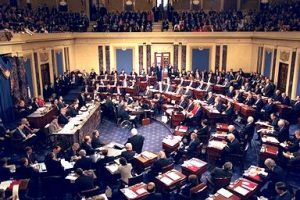 On Friday, GOP negotiators released their Conference Report (Report) reconciling House and Senate versions of the Tax Cut and Jobs Act. The tax bill would affect U.S. energy policy in several ways, impacting electric vehicles (EV), the clean energy industry, as well as oil & gas operations. Now that a deal is complete, two significant energy-related items, the Base Erosion Anti-Abuse Tax and the opportunity to drill in the Arctic National Wildlife Refuge, are likely to become law very soon.
On Friday, GOP negotiators released their Conference Report (Report) reconciling House and Senate versions of the Tax Cut and Jobs Act. The tax bill would affect U.S. energy policy in several ways, impacting electric vehicles (EV), the clean energy industry, as well as oil & gas operations. Now that a deal is complete, two significant energy-related items, the Base Erosion Anti-Abuse Tax and the opportunity to drill in the Arctic National Wildlife Refuge, are likely to become law very soon.
Base Erosion Anti-Abuse Tax:
To offset U.S. tax liability, multinational companies often make payments to overseas affiliates and also purchase renewable energy tax credits. Particularly for solar and wind projects, these tax credits are a critical source of funding. The new tax bill, however, will create the Base Erosion Anti-Abuse Tax (BEAT), which has clean energy advocates concerned. Functionally, BEAT originally aimed to prevent multinational companies from reducing their U.S. tax liability by imposing a minimum tax on corporate income that companies could not offset with the energy tax credits. Arguing that enacting the Senate’s version of BEAT would effectively dry up a $12 billion tax equity market, advocates asked conference negotiators to review the issue.
Hearing industry concerns, GOP negotiators altered the final tax legislation by allowing companies to offset 80% of the BEAT minimum tax using renewable energy tax credits. In response, American Council on Renewable Energy President, Gregory Wetstone said “We are grateful for the elimination of provisions that would have decimated future renewable energy growth and even penalized past investment in wind and solar power, but we remain concerned about the potential impacts of the new BEAT (tax) on renewable energy finance”.
Arctic National Wildlife Refuge:
Introduced by Senator Lisa Murkowski (R-AK), the legislation allows for two lease sales over a seven-year period of no less than 400,000 acres per transaction. The bill also establishes a 50% revenue sharing split between Alaska and the federal government with the CBO estimating that the expected gross proceeds from the leasing program would be roughly $2.2 billion over the 2018 – 2027 period, or $1.1 billion each for Alaska and the federal government.
Looking forward, the simplest and most effective policy would be a carbon tax, which could be rebated to workers through a reduction in the payroll tax rate. This would encourage… Read more »
Jason: A similar but better approach is to rebate all the collected carbon fees to every legal resident on an equal basis. That way, all affected people — including those… Read more »